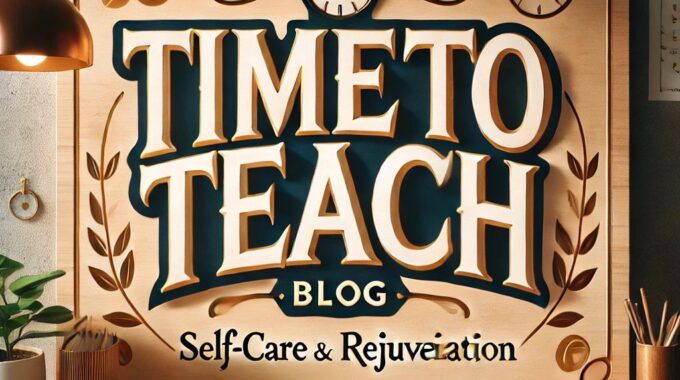As we turn the corner into spring, it’s the perfect time to refresh our teaching…
Leadership for Deeper Learning: Excerpt 05
We believe in thanking our sources! This post was sourced from the following blog/website: http://feedproxy.google.com/~r/dangerouslyirrelevant/~3/jnmyFs4Z9qg/leadership-learning-excerpt-05.html
The following is a new blog post related to education and teaching and relevant to our website visitors. The blog post is not based on the opinions or values of our company but is related to education and teaching, so we wanted to share it with YOU! If you ever have any questions please let us know. Now… on to the post!
 [To celebrate our upcoming book, Leadership for Deeper Learning, I am publishing an excerpt each day for a week before its release. We interviewed leaders at 30 different ‘deeper learning’ schools around the world in 2019 and 2020. We then followed up those interviews with site visits, observations, on-site photographs and videos, and additional conversations. Our goal was to try and parse out What do leaders at innovative schools do that is different from their counterparts in more traditional schools? As you might imagine, we saw some fantastic leading, teaching, and learning. We describe what we saw in detail in the new book and, in Chapter 7, articulate a Profile of a Deeper Learning Leader that’s based on empirical research, not just anecdotes. We think that this book makes a unique contribution to what we know about leadership in deeper learning schools. The book is written for a practitioner audience and is full of concrete, specific examples to get folks thinking about possibilities. Also, every main chapter concludes with Key Leadership Behaviors and Support Structures. If you order it, let me know what you think!]
[To celebrate our upcoming book, Leadership for Deeper Learning, I am publishing an excerpt each day for a week before its release. We interviewed leaders at 30 different ‘deeper learning’ schools around the world in 2019 and 2020. We then followed up those interviews with site visits, observations, on-site photographs and videos, and additional conversations. Our goal was to try and parse out What do leaders at innovative schools do that is different from their counterparts in more traditional schools? As you might imagine, we saw some fantastic leading, teaching, and learning. We describe what we saw in detail in the new book and, in Chapter 7, articulate a Profile of a Deeper Learning Leader that’s based on empirical research, not just anecdotes. We think that this book makes a unique contribution to what we know about leadership in deeper learning schools. The book is written for a practitioner audience and is full of concrete, specific examples to get folks thinking about possibilities. Also, every main chapter concludes with Key Leadership Behaviors and Support Structures. If you order it, let me know what you think!]
Excerpt 05
One of the most important resources that schools have is time. Most traditional schools are locked into static time blocks, whether they have a traditional 7- or 8-period daily schedule or an alternating-day block schedule with longer class times. At Legacy High School, Tom Schmidt and Ben Johnson, the secondary assistant superintendent, talked to us about how they divided the day into 22 modules, or ‘mods,’ which has allowed for tremendous flexibility. While students in most schools spend equal amounts of time in each subject every week, students at Legacy High School have the ability to determine much of their schedules. For instance, a student who is strong in math might spend less time in math class, while a student who is strong in science might spend less time in science class. Teachers also vary their own time, depending on their own preferences and what they think their students’ learning needs are. Instead of teaching five 50-minute classes each week, a Social Studies teacher might offer three 60-minute classes and a 40-minute review class one week, while a Biology teacher down the hall might offer two 80-minute lab sections, a 60-minute direct instruction section, and a 40-minute group work section during the same week. Students with non-allocated mods can utilize them for homework, study groups, outside internships and job shadowing, community-based service learning, passion projects, and school clubs, or simply to take a break during an otherwise busy day.
One of the strengths of Legacy High School’s approach is that many teachers are coordinating together on instruction and scheduling. The four Algebra teachers, for example, might keep their classes roughly on pace with each other. If a student has to miss her Algebra teacher’s introduction of a new concept because of a conflict with an outside internship or a hockey competition, she can just attend another teacher’s session instead. Teachers and peer tutors also collaborate to provide context-specific help sessions, called Saber Centers, throughout the week. The Biology teacher might give an assessment after 20 minutes of her 60-minute class, dismiss the twenty students that have the concept down, and work with the other ten students for the remaining time. Students who still need more support can attend one of the Saber Center mods and get individualized tutoring from one of the other Biology teachers or a fellow student. Outside of the main classrooms are numerous flexible spaces that allow for individual work and small group collaboration. As Tom noted, it’s like “a college schedule in a high school environment. You have some heavy days, you have some light days. We have students who take up to eight classes but on any given day they only have five per day.”
Ben told us that the flex mod schedule has really opened up possibilities for students to engage in deeply-personalized projects, community internships with outside partners, and capstone experiences that they can leverage for college admissions. Tom added that their alumi return and affirm their college preparedness: “They know how to function in a large group, they can manage their schedule… if they’ve got class on Tuesday and Friday, they know how to prioritize their work in between.” Students also have exercised their collective voice and requested additional learning opportunities such as outdoor recreation, environmental science, and culinary arts to fill their open mods. Legacy High does everything it can to fulfill these requests. It all seems to work. Tom told us, “If I went to our staff right now and tried to take away the flex mod scheduling [and return to a traditional schedule], I’d have torches and pitchforks at my door.”
Leadership for Deeper Learning, Chapter 5
Time To Teach reviews each blog post by our contributors but if you feel this is a blog post better suited for another page please let us know.
Teachers and Educators are our heroes. We want to thank you for the work you do!
Yours In Education!
Time To Teach

